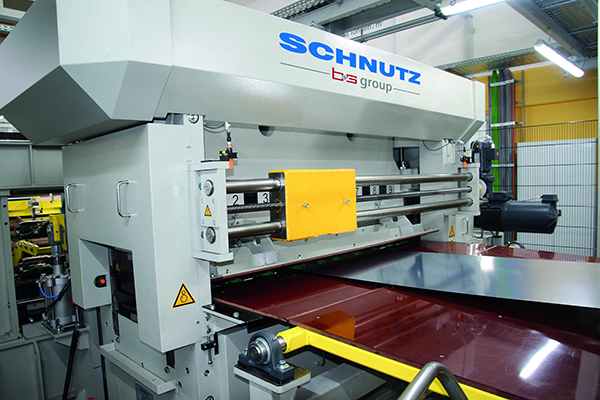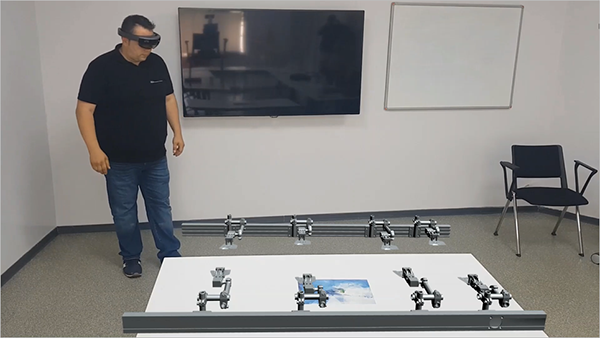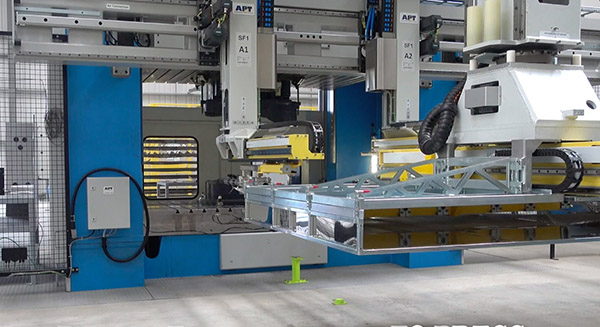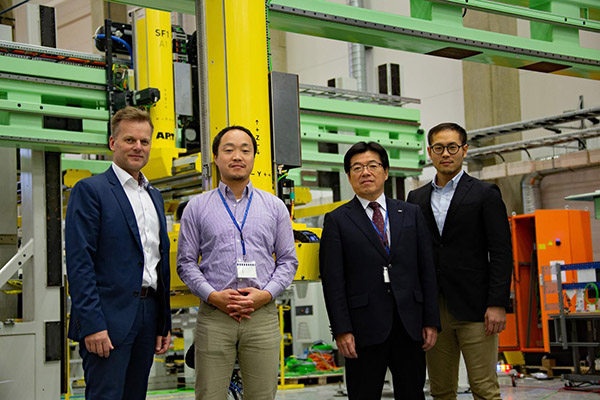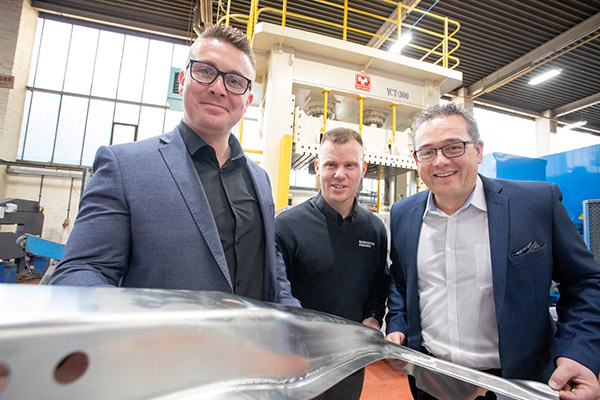In sheet metal processing, ever greater flexibility of blanks is required for complex applications. Even with changing sheet thicknesses, demanding materials often have to be cut precisely and quickly. However, processing with separate cut-to-length and slitting lines is time-consuming and can only be carried out in several steps.

For this reason, Burghardt + Schmidt GmbH has developed multi-blanking systems that combine both work steps in a single run. As a result, even changing cut sizes can be carried out efficiently and with the highest quality in-house – without additional logistics costs. The systems enable a speed of up to 100 m/min with plug-in limits of over 1000 N/mm² and material strengths of over 1500 N/mm². Thanks to inspection measures, the new multi-blanking lines are particularly suitable for sensitive material surfaces such as stainless steel and aluminium strips.
“In order to avoid delays caused by external suppliers, many of our customers demand the integration of slitting shears into their cut-to-length lines in order to carry out a further work step in-house,” reports Thomas Baral, managing director of Burghardt + Schmidt. “Therefore, we have used the synergy effects of individual companies in the B+S group to develop flexible systems for these high-quality requirements.”
The B+S group multi-blanking lines combine a cut-to-length line with a slitting line and are designed for sheets with a material width of up to 2500 mm and a material thickness of 0.1 to 6.0 mm.
“Before the first cut, the coil is levelled and cut into longitudinal strips,” explains Baral. “These strips are then cut crosswise, resulting in up to five sheet blanks per segment in the desired length.”
For further information www.b-s-germany.de







